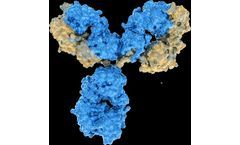Refine by
Lymphoma Articles & Analysis
33 articles found
The BCL2 gene, short for B-cell lymphoma 2, is a critical regulator of apoptosis, or programmed cell death. ...
This immunotherapy has shown remarkable success, particularly in hematologic malignancies such as acute lymphoblastic leukemia and certain types of lymphoma. However, the complexity and high costs associated with CAR-T development have prompted researchers and companies to seek more efficient and effective approaches. ...
It allows for the simultaneous detection of gene rearrangements and the expression of corresponding proteins, helping in the characterization of specific subtypes of leukemia and lymphoma. Furthermore, it sheds light on the interplay between genetic abnormalities and protein expression, offering insights into potential therapeutic targets. ...
This method, known as CAR-T cell therapy, has shown remarkable success in treating certain types of leukemia and lymphoma, offering a potential cure where traditional therapies have failed. ...
In healthcare, clonality analysis is crucial in the diagnosis, prognosis, and treatment planning of cancers, particularly leukemia and lymphomas. By mapping the clonal architecture of tumors, healthcare providers can make informed decisions regarding treatment options and predict patient outcomes. ...
In healthcare, clonality analysis is crucial in the diagnosis, prognosis, and treatment planning of cancers, particularly leukemia and lymphomas. By mapping the clonal architecture of tumors, healthcare providers can make informed decisions regarding treatment options and predict patient outcomes. ...
Diseases Associated with CD19 CD19 is implicated in various significant diseases, including: 1) B-Cell Lymphoma: B-cell lymphoma, a type of leukemia and lymphoma arising from lymphoid tissue, shows overexpression of CD19 on the surface of B cells in certain patients. ...
In cancers such as breast, colon, and lymphoma, persistent activation of NF-κB leads to abnormal activity of cell cycle-related proteins. In addition, persistent activation of NF-κB increases the levels of a number of cytokines that promote cancer growth, such as IL-1β (acute leukemia growth factor), TNF (malignant lymphogranuloma, T-cell ...
It can effectively combat various ALK-secondary resistance gene mutations, and has strong central nervous system permeability, maintaining high blood concentration in brain tissues. About anaplastic lymphoma kinase (ALK) ALK was first identified in a subtype of anaplastic large-cell lymphoma (ALCL), hence named anaplastic lymphoma kinase (ALK). ...
Expression of anti-CD19 chimeric signaling receptors can enhance NK-cell reactivity against CD19+ leukemia and lymphoma cells. Here we describe a method to enforce expression of such receptors in human NK cells relying on electroporation of mRNA and compare it to retroviral transduction of cDNA. ...
EBV infection is associated with a variety of human malignancies and malignant tissue proliferative diseases, including malignant lymphoma, gastric cancer, nasopharyngeal carcinoma, and hemophagocytic syndrome. ...
By engaging CD16-positive NK cells, AFM13 leads to NK cell-mediated killing of tumor cells.1 Pembrolizumab (Keytruda®) is approved in patients with R/R classical Hodgkin lymphoma as monotherapy. AFM13 showed single agent clinical activity with solid safety profile in a Phase 1 study2. Pre-clinical in vivo data of the combination of AFM13 with PD1-blockade showed synergism and ...
Although CAR-T therapy has revolutionized the treatment of hematological diseases such as leukemia and lymphoma, it has not translated into similar success in solid tumors. ...
Only beneficiaries with specific cancer diagnoses and who are receiving systemic chemotherapy treatment (excluding exclusively hormonal therapies) are eligible for EOM, these include: breast cancer, lung cancer, lymphoma, multiple myeloma, small intestine/colorectal, prostate cancer, and chronic leukemia. ...
The receptors on the surface of CAR-T cells can act as a GPS, looking for special markers on the surface of cancer cells; a variety of CAR-T cell therapies have been approved for the treatment of patients with leukemia, lymphoma and multiple myeloma, but there are currently no CAR-T cell therapies approved for the treatment of solid tumors. ...
Anti-CD20 therapeutic rituximab-based APECs were developed to validate the therapeutic efficacy of APECs in lymphoma. rAPEC was found to be effective for antigenic reprogramming of the malignant B cell line JY but not for healthy B cell reprogramming. ...
Ravindra Gupta, a virologist at University College London, told the conference that the "London patient" was 36 years old, had Hodgkin's lymphoma and received a bone marrow transplant with the CCR5Δ32 mutation in May 2016. ...
Adcetris, Polivy, and second-generation cleavable linkers Meanwhile, Seagen (formerly Seattle Genetics) designed its own coupling technology to bioconjugate marigold (MMAE) to the cysteine residues of anti-CD30 antibodies via the cleavable linker mc-VC-PABC, which contains a maleimide-based spacer, a standard Val Cit dipeptide sequence as a histoproteinase substrate, and a PABC self-degrading ...
Brentuximab Vedotin Brentuximab vedotin (Adcetris) was licensed in 2011 for the treatment of Hodgkin's lymphoma and mesenchymal large cell lymphoma, as well as other CD30-expressing lymphomas. ...
The aim of this new study was to investigate the expression and function of PTGDS in diffuse large b-cell lymphoma (DLBCL), especially the potential role of PTGDS inhibitor AT56 in lymphoma therapy. ...













